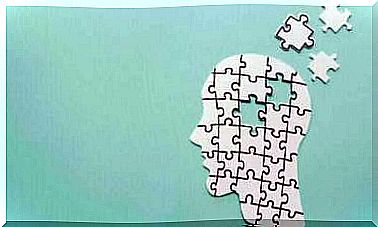Adaptive Psychopaths: Empathy And Darkness

Recent research from the American Psychological Association (APA) indicates that some adaptive psychopaths have empathy. What they have seen is that those who have been called psychopaths and do not engage in criminal activity can manifest very adaptive abilities in society. Learn more about adaptive psychopathy in this article!
We are not going to delve into the controversy that the term “psychopath” still generates. Instead, we will focus on the coexistence of absolutely conflicting characteristics in these individuals.
The fact is that research in psychopathy is divided into two fields. It is argued that psychopathy by default cannot include any kind of adaptive properties. The other side argues that to some extent we can find adaptive characteristics in psychopathic people.
Researchers have developed several tools to help them examine psychopathic traits based on these two views. However, there are significant discrepancies in the results. Of all the studies conducted, the most comprehensive was Guillaume Durands, called The Effects of Psychopathic Properties on Fear of Pain, Anxiety and Stress . It is an innovative point of view that explains how adaptive psychopaths control their emotions.
Adaptive psychopaths: Expand and improve its definition
The researchers subjected 529 participants to a series of psychological tests. They measured psychopathy, fear of pain, anxiety and stress.
They used a test that looks for two different types of psychopathy: dominance and impulsive antisociality. The first is related to boldness and courage, while the second is to selfishness, guilt and impulsivity.
The researchers found that people who scored high on the dominance assessment tended to have less fear of pain, anxiety and stress. On the other hand, those who scored high on the impulsive antisociality scale showed higher anxiety and stress levels.
The results of the study
The study suggests that the definition of psychopathy given by the media (a mass murderer deprived of any form of morality) is far from the truth. While these people obviously exist, others have more adaptive than maladaptive characteristics. As a result, this makes them fully functional in society.
The results of psychopathic characteristics and their relationship to fear, stress and anxiety may vary depending on the model used (with or without adaptive characteristics). Experts usually perform a diagnosis of psychopathy using a test known as the Hare Psychopathy Checklist-Revised (PCL-R). However, this test focuses on maladaptive behavior patterns and traits.
The great importance of including adaptive and maladaptive traits in the study of psychopathy
The focus of this study was to investigate the discrepancies in the results in psychopathy. The largest discrepancies they examined occurred when the adaptive traits of the questionnaire were negatively correlated with fear of pain, anxiety and stress, where the opposite was true for the maladaptive traits.
To solve this problem, Guillaume Durand created the questionnaire for adaptive psychopathic traits (Durand, 2017; Journal of Personality Assessment ), which exclusively evaluates adaptive psychopathic traits. The use of this instrument in individuals who are considered highly psychopathic enables researchers to clearly distinguish adaptive psychopathic individuals from maladapted individuals.
Adaptive psychopaths and empathy
Although empathy is useful on an altruistic level, it is also a tool for the Machiavellian mind. This is because it needs good “information” to be able to evaluate and potentially benefit from others.
Psychopathy can serve the common good. For example, in situations that require high-level performance, such as lifeguards, health workers, soldiers and others in high-risk situations. In these contexts, emotions fall into the background and help people make “cold” and simplified decisions.
Mihailides, Galligan and Bates (2017) call this “adaptive psychopathy”. This describes the “quarantine vector” where empathic information is combined with useful psychopathic mental processes. For example, dealing with threats that are in conflict with one’s values and beliefs.
There is cognitive and affective empathy. They are independent of each other, but also tend to cooperate.
Cognitive empathy is the ability to see things from another person’s perspective. Affective empathy is the ability to feel the feelings of others. Narcissists show a lot of cognitive empathy.
Adaptive psychopaths can help in society
The traits transmitted by adaptive psychopaths have an evolutionary advantage. If they did not have it, they would not be as common as they are.
People who can show psychopathic thinking can sometimes have an advantage. They can be critical to a community’s survival, and provide aspects that are free of inhibition and more aggressive. In addition to this, they are able to concentrate more efficiently and get the job done. We are talking here about an extremely sensitive balance.
Adaptive psychopaths have a greater capacity to make sense of the motivation of others. They need to help others make decisions, while retaining the ability to choose when to participate and when not to. Different groups of individuals can provide a balance to maintain a dynamically adapted community.
Greater empathy combined with their darker features can preserve the quality of the relationship. That is, we can sometimes overlook the dubious traits of adaptive psychopaths when we see that they present a certain degree of empathy. If they did not, we would not welcome them at all.









